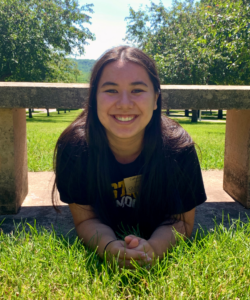A Minnesota-based research team led by Gustavus Adolphus College history professor Maddalena Marinari has been awarded a Rapid-Response Grant on COVID-19 and the Social Sciences by The Social Science Research Council (SSRC) to explore the impact of COVID-19 on African, Asian, and Latinx immigrant and refugee communities. The grant is one of only 62 awarded to research groups across the globe from a pool of over 1,300 applicants.
“I’m particularly grateful that the SSRC is funding this project at a time when immigration numbers are so low and we’re seeing increased anti-immigrant sentiment and legislation in the United States,” Marinari said. “As a historian, I feel privileged to have the opportunity to record these voices that have too often been erased from history. We envision that the final product will be useful not just to academics, but also to researchers, legislators, students, and activists who seek to be informed about the impact of COVID-19 on immigrants in the United States. We hope that this information will help people come up with equitable and social justice-centered responses to the pandemic.”
Marinari will partner with University of Minnesota Regents Professor of History and Asian American Studies Erika Lee and Gustavus student researchers Cat Lim and Lillie Ortloff to contribute to a curated digital collection of news reports, data, perspectives, and other resources documenting the experiences of immigrants and refugees across the country. The collection, created at the University of Minnesota under the leadership of Lee, focuses on health, economic, and social impact and covers the first six months of the pandemic. Professor Marinari and her researchers will cover the rest of 2020 and expand the coverage of refugees and asylees in the collection.
Marinari is excited to include the undergraduate students in the project. “One of the best aspects of this grant is how it allows us to bring in two Gustavus students to conduct hands-on humanities research while contributing to the historical record,” she said. “One day people will look back on these archives and see their names attached to it. I’m glad they will be able to see the fruits of their labor and know they had a hand in preserving this history.”

For senior biology and history major Cat Lim, the project’s focus on how the pandemic impacts marginalized populations is providing a unique opportunity to pair her academic interests. “People think of biology and history as two totally separate disciplines, but for me they’re closely related,” she said, explaining how the liberal arts are preparing her for a life in medicine. “I’m planning to be a pharmacist, and projects like this that focus on the human experience help me understand how identities, legislation, and social roles can impact an individual’s experiences. It’s about more than being good at science — I need to understand how these aspects may impact my future patients, so I can better serve them.”
Lim and Ortloff’s work will focus on documenting and archiving information, narratives, news accounts, op-eds, and stories from a variety of media with a particular focus on those who are seeking asylum in the United States. They gather the sources, compile and sort by category, and annotate each piece. It requires both attention to detail and an eye for thematic elements that will prove useful for researchers down the road.
“I’m excited that future researchers will have access to these resources,” Lim said. “Amid renewed calls for racial justice, this work feels very important in ensuring that the stories of marginalized communities during this unprecedented time are not forgotten.”
“History is happening right now,” Marinari added. “I am excited to be part of an effort to preserve this moment in time and give a voice to communities that are often marginalized or ignored.”